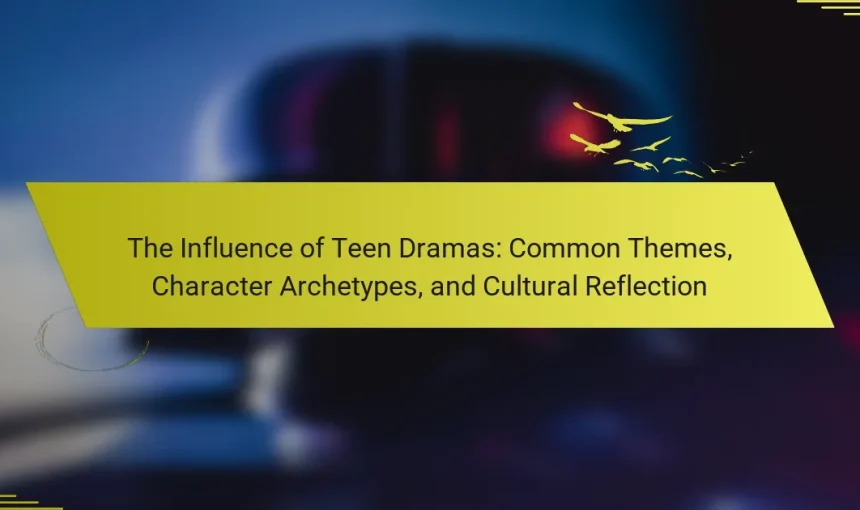Teen dramas significantly influence youth culture by shaping identities, social norms, and behaviors. These shows often feature relatable characters, represented through common archetypes such as the hero, the rebel, the nerd, and the popular kid, which help to simplify complex social interactions. Themes such as mental health, identity, and peer pressure are prevalent, with series […]
Animated series are television programs that utilize animation as their primary medium, merging visual art with storytelling to engage a wide range of audiences. These series cater to various age groups, often addressing complex themes and social issues while reflecting cultural values and societal norms. The content of animated series is heavily influenced by target […]
Anthology series are a format in television and film that feature distinct stories and casts for each episode or season, allowing for a wide range of storytelling and thematic exploration. This article examines the unique storytelling methods of anthology series, highlighting notable examples such as “The Twilight Zone,” “Black Mirror,” and “Fargo.” It also addresses […]
The comedy genre encompasses literature, film, and performance designed to entertain and elicit laughter through various humor techniques, such as exaggeration and absurdity. Key subgenres of comedy include stand-up, sketch, sitcom, and improv, each with unique characteristics that cater to diverse audiences. Notable shows like “Friends,” “The Office,” and “Parks and Recreation” exemplify the genre’s […]
The article examines the evolution of science fiction (sci-fi) television shows, focusing on key elements such as technological advancements, narrative complexity, and cultural reflection. It highlights how innovations like CGI have transformed visual storytelling, while shows such as “The Expanse” and “Black Mirror” illustrate deeper thematic exploration and societal critiques. Additionally, the article discusses how […]
Crime dramas are television series centered on criminal activities and the legal system, often featuring a central crime that drives the plot and characters such as detectives, criminals, and legal professionals. This article examines the defining characteristics of crime dramas, including common narrative tropes like the flawed detective, red herrings, and the ticking clock, which […]
Horror TV shows are a captivating genre known for their ability to evoke strong emotional responses, creating suspense and thrill that engage viewers. This article examines the psychological effects of horror, highlighting how it explores deep fears and societal anxieties while triggering adrenaline release for enhanced viewer engagement. Iconic franchises such as “The Twilight Zone,” […]
Streaming platforms are digital services that provide on-demand access to video and audio content, including movies, TV shows, and music. The article explores the significant growth of these platforms, highlighting the projected global revenue exceeding $100 billion by 2025 and a notable shift in audience viewing habits towards streaming over traditional cable. It also examines […]
Superhero shows significantly influence character development through complex narratives and emotional engagement. These shows often feature intricate story arcs, including origin stories, hero versus villain conflicts, and redemption arcs, which enhance character depth and relatability. As characters navigate moral dilemmas and personal growth, viewers develop a strong emotional investment, fostering long-term loyalty. The serialized storytelling […]
The rise of reality TV marks a significant increase in the popularity and production of unscripted television programming, beginning in the late 1990s with shows such as “Survivor” and “Big Brother.” By the early 2000s, reality TV became a dominant entertainment genre, attracting millions of viewers and influencing pop culture through trends, language, and social […]







